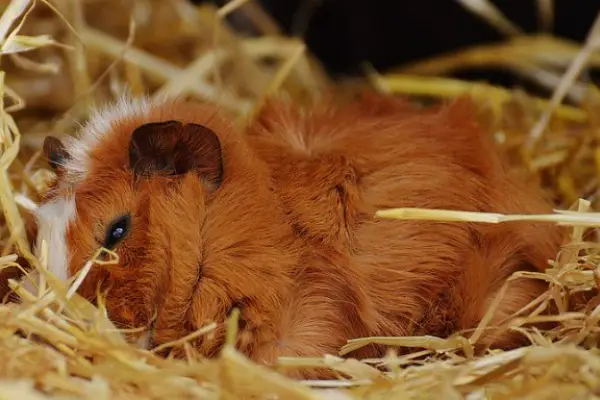22 Most Common Guinea Pig Behavior
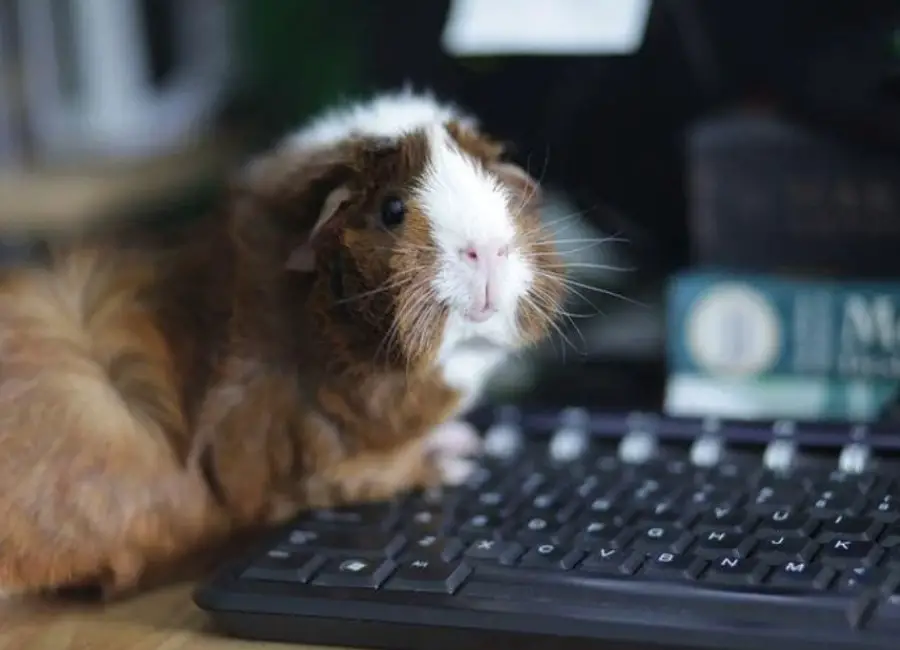
Guinea pig behavior is of great importance to most pet lovers as it can help you understand them better.
In this post, we will discuss all the most common guinea pig behaviors you should know.
I will try to keep this post as short as possible, keep reading to understand your guinea pig behavior…
Guinea pig behavior
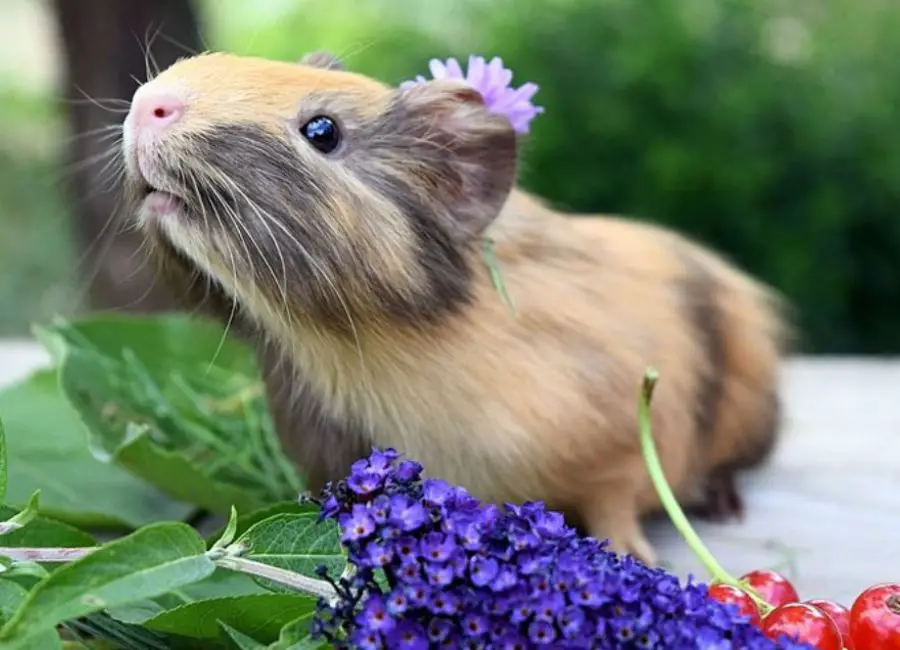
Here are some common Guinea Pig behaviors you should know:
1. Squealing
Squeals from guinea pigs can express a range of feelings, such as fear, enthusiasm, and pain.
For instance, guinea pigs may squeal out of fear or discomfort if they are taken up or handled harshly.
A guinea pig may also squeal out of enthusiasm while playing with toys or engaging with other guinea pigs.
2. Popcorning
Guinea pigs will leap and squeal while “popcorning,” or kicking their legs in the air.
This conduct is an indication of delight, excitement, and happiness.
Little guinea pigs frequently popcorn, but when they’re excited or playing while older guinea pigs will also do the same when excited.
Find out more about signs your guinea pig loves you.
3. Wheeking
Guinea pigs wheek, which is a high-pitched sound they produce when they are happy, delighted, or expecting something.
When they hear the sound of food being prepared or when they see their owners coming, they frequently make this sound.
The natural action of wheeking indicates that your guinea pig is content and healthy.
4. Teeth chattering
When they are frightened, afraid, or in pain, guinea pigs chatter with their teeth.
If the guinea pig is also puffing up its fur or charging at another guinea pig, this behavior may also be an indication of aggression.
To prevent frightening your guinea pig, move slowly and gently toward them if they are chattering their teeth.
5. Hiding
When guinea pigs are nervous, stressed, or need to rest or sleep, they may hide.
In order for guinea pigs to feel comfortable and secure, the cage needs to have locations where they may hide.
Guinea pigs naturally hide, which is a sign that they are at ease in their surroundings.
Learn more about signs of loneliness in guinea pigs.
6. Nibbling
To show affection or to investigate their surroundings, guinea pigs may chew on things or their owners.
Typically, this conduct is kind and unharmful. Nibbling is a show of curiosity and interest on the part of your guinea pig.
7. Chewing
Guinea pigs must chew to prevent their teeth from becoming too long because they are constantly developing.
Chewing can also be a sign of anxiousness or boredom.
Offering chew toys and hay can help them fulfill their chewing desires and avoid tooth issues.
Learn more about making guinea pigs happy.
8. Biting
If they are frightened, scared, or in pain, guinea pigs may bite. If they’re attempting to assert their dominance, they might also nip.
To avoid biting, it’s crucial to handle guinea pigs gently and pay attention to their body language.
If your guinea pig bites you, it’s crucial to wash the wound and, if required, get medical help.
9. Licking
To express affection or groom them, guinea pigs may lick their owners or other guinea pigs.
A symbol of trust and love is licking. If your guinea pig licks you, it means they trust you and are at ease with you.
Learn more about the signs of a happy guinea pig.
10. Mounting
Guinea pigs may mount one another to assert their authority or as a display of love.
This behavior can happen during mating and is more typical in male guinea pigs.
Excessive mounting between your guinea pigs could indicate violence or a territorial dispute.
11. Swaying
When guinea pigs are content or at ease, they may sway back and forth.
The purring that frequently goes along with this action is a sign of contentment.
Guinea pigs naturally sway, which is a sign that they are at ease and comfortable.
12. Scratching
To relieve irritation or discomfort, guinea pigs may scratch themselves or their environment.
To avoid skin irritation, it is crucial to offer clean, dry bedding.
Excessive scratching in your guinea pig could indicate an allergy or skin issue.
Learn more about signs your guinea pig hates you.
13. Digging
To make a cozy sleeping area or to demarcate their territory, guinea pigs may dig in their bedding or on their humans.
By creating tunnels and hiding places, you may satisfy their digging urges and stop them from digging in undesirable places.
14. Stretching
Stretching helps guinea pigs release tension and strengthen their muscles.
Stretching comes naturally and is an indication of health and well-being.
It’s crucial to provide guinea pigs enough room to stretch out and walk about without restriction.
15. Hopping
When they are joyful and energetic, guinea pigs may also jump and skip around, which is similar to popcorning.
This action, which is frequently accompanied by happy squeaks, can show that your guinea pig is feeling okay.
16. Head tilting
A guinea pig’s head tilting to one side or the other may be an indication that it is curious and that it is trying to hear or see things more clearly.
Nevertheless, head tilting can also be an indication of an ear infection or other illness, so it’s crucial to keep an eye on your guinea pig’s behavior and seek medical attention if you see any unusual signs.
17. Dragging or fluffing up bedding
To provide a more comfortable sleeping space or to demarcate their territory, guinea pigs may drag or puff up their bedding.
Guinea pigs naturally exhibit this behavior, which can make them feel safer and more at home in their habitat.
18. Urine spraying
Guinea pigs may spray pee to mark their area and communicate with other guinea pigs, which is similar to other animals’ marking activities.
Although it can also be seen in female guinea pigs, this behavior is more typical in males.
Urine spraying by your guinea pig may be a sign of stress or territorial issues and calls for extra care and attention.
Learn more about the top things guinea pigs hate most.
19. Scent marking
Guinea pigs can scent mark objects in their enclosure by rubbing their chins or cheeks against them, in addition to spraying pee.
By scent, they can establish their territory and interact with other guinea pigs using this behavior.
20. Nudging
Guinea pigs frequently nuzzle their owners or other guinea pigs to gain attention or assert their dominance.
Objects may also be nudged by guinea pigs in order to move them or explore their surroundings.
21. Chasing
Guinea pigs could chase one another around their pen as a game or to assert their dominance.
Male guinea pigs frequently act in this way, especially when they’re attempting to win over a female guinea pig.
22. Shaking
To try to get rid of extra water or to dry off after a wash, guinea pigs may shake their body a lot.
It’s crucial to keep an eye on your guinea pig’s behavior and take it to the vet if you detect any signs of severe shaking because this behavior might be a sign of illness or injury.
Frequently Asked Questions
What are some common behaviors exhibited by guinea pigs?
Guinea pigs are social creatures and enjoy interacting with their owners. They also spend a lot of time grooming themselves and each other.
Common behaviors include exploring their environment, running and playing, and eating hay and other foods.
How do guinea pigs communicate with each other?
Guinea pigs communicate primarily through vocalization, using a variety of sounds such as squeaks, chirps, and purring.
They may also communicate through body language, such as raising their hackles when feeling threatened or happy.
How do guinea pigs behave when they are scared?
When frightened or threatened, guinea pigs may freeze in place, run and hide, or try to defend themselves by biting or scratching.
It’s important to be gentle and patient with them to build trust and reduce fear.
Can guinea pigs be trained to do tricks?
Yes, guinea pigs can be trained to do simple tricks such as coming when called, running through an obstacle course, and even playing fetch.
Positive reinforcement techniques such as offering treats and praise can be effective.
Do guinea pigs need to exercise outside of their cage?
Yes, guinea pigs should be given time outside of their cage to exercise and explore their environment.
This can include a safe outdoor playpen or a designated room inside the house.
Supervision is important to ensure their safety.
Why do guinea pigs sometimes grind their teeth?
Grinding teeth in guinea pigs can indicate pain, discomfort, or anxiety. It may also be a sign of pleasure, much like a cat purring.
If teeth grinding is accompanied by other symptoms such as lethargy or loss of appetite, it’s important to seek veterinary care.
Conclusion
In conclusion, guinea pigs are fascinating creatures with a wide range of behaviors that can be both amusing and endearing.
From their playful “popcorning” to their affectionate cuddles, these little animals have a lot to offer as pets.
By understanding their most common behaviors, you can better care for and appreciate your furry friend.
So whether you’re a seasoned guinea pig owner or considering getting one for the first time, take the time to observe and appreciate all the unique quirks and personalities that make these animals so special.

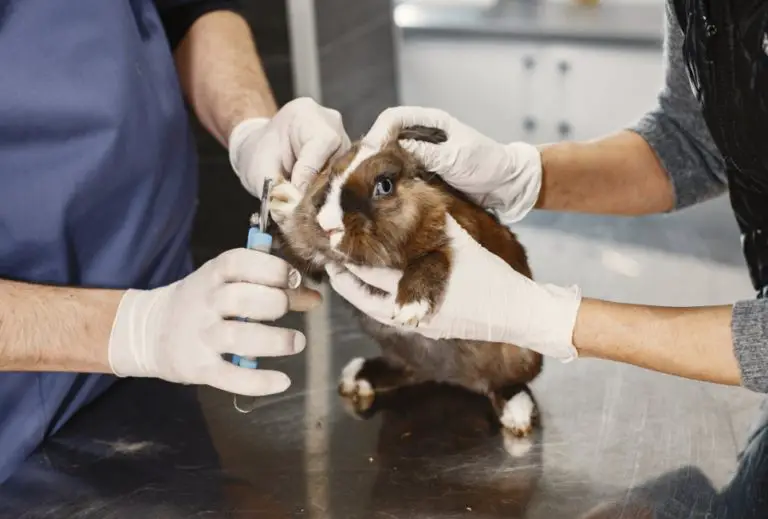
![Can Guinea Pigs Eat Tomatoes [Pros & Cons] can guinea pigs eat tomatoes](https://petcreeks.com/wp-content/uploads/2022/04/can-guinea-pigs-eat-tomatoes.jpg)
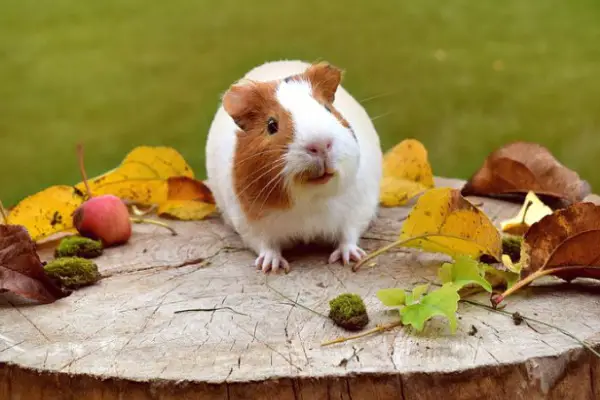
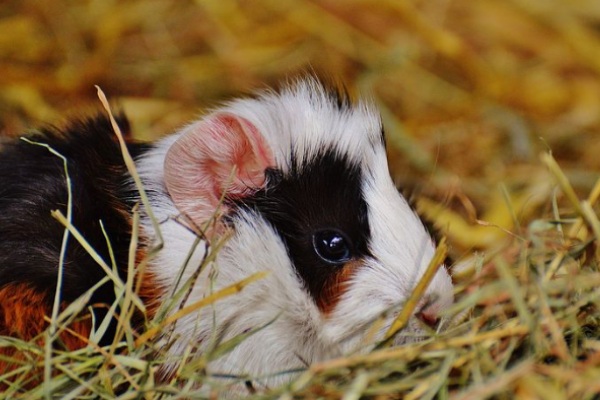
![Can Guinea Pigs Eat Grapes [Helpful Tips] Can Guinea Pigs Eat Grapes](https://petcreeks.com/wp-content/uploads/2022/04/Can-Guinea-Pigs-Eat-Grapes.jpg)
